Webinar
Reducing the burden of medicines with anticholinergic effects on older people
Join our multidisciplinary panellists as they discuss how improved collaboration and communication between prescribers, pharmacists and nursing staff can reduce the risk of medicine-related adverse events such as dizziness, falls, dry mouth and constipation.
-
Start: 30 March 2022
-
Cost: free

Accreditation
This activity has been approved for 2 points (CPD Activity) under the RACGP CPD Program for the 2020-2022 triennium (activity number: 335332).
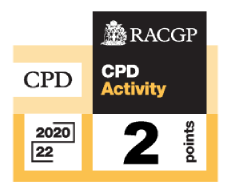
This activity has been accredited for 1 hour under the educational activity category in the ACRRM PD Program for the 2020-2022 triennium (activity code: 26017).

It is recommended that 1 CPD hour be recorded for the purposes of self-directed CPD.
About
Unintended adverse events due to a cumulative anticholinergic burden from multiple individual medicines can have serious consequences for older people. In particular, confusion and dizziness can result in fall-related hospitalisation. Other side effects, such as dry mouth and constipation, impact on quality of life.
In this case-scenario-based webinar, each panel member will provide their perspective on how to improve patient outcomes through effective collaboration and communication.
The panel will cover the practicalities of working as a multidisciplinary team when it comes to assessing, managing and reviewing anticholinergic burden, and will discuss how best to involve the patient and other family members to ensure a truly patient-centred approach.
Meet the panel

Dr Anna Samecki – Facilitator
Dr Anna Samecki is a GP with a special interest in medical education. She has worked across a number of clinical and non-clinical settings, and has expertise in educational program design and implementation, medical editing and writing, stakeholder engagement and medical journalism.
Anna is a Fellow of the Royal Australian College of General Practitioners (RACGP) and holds a Graduate Certificate in Health Professional Education.
In addition to working as a Medical Advisor and media spokesperson at NPS MedicineWise, she is a medical educator who has taught medical students at the University of Notre Dame (School of Medicine) for the last five years, is a GP Clinical Editor for HealthPathways Sydney (an online clinical tool for GPs to use at the point-of-care) and is also a GP Journalist with the RACGP’s newsGP team.
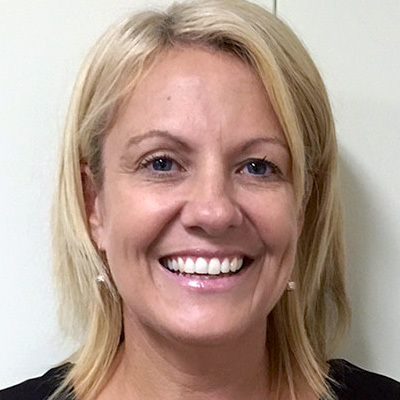
Melissa Cromarty
Melissa is a Board Director at the Australian Primary Health Care Nurses Association (APNA). Mel currently works as a Facility Manager at Calvary Care. She is a residential aged care nurse, and has qualifications and experience in emergency, intensive care, general practice and aged care.
Mel’s passions include promoting the positive impact of nurses in improving health outcomes and the important role nurses play in chronic disease management and preventative health.
In a previous role, Mel was Team Leader with the Hunter New England and Central Coast Primary Health Network where she helped increase the profile of Primary Health Networks (PHNs) to ensure that general practices understood and appreciated the value of nurses in the primary care setting. Mel has also educated PHNs about their role in implementing alternate models of care.
Prior to joining APNA’s Board, Mel was involved with APNA’s Education Endorsement Program, Conference Advisory Committee and represented APNA on the Decision Assist Advisory Group on Palliative Care.
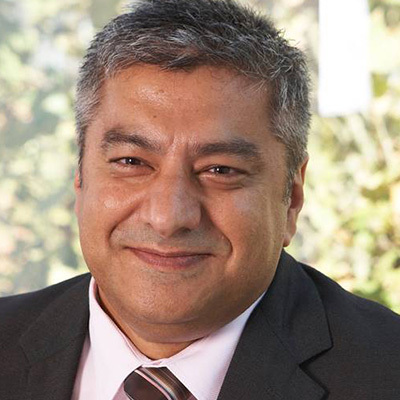
Dr Paresh Dawda
Paresh Dawda is a GP with a clinical practice focused on people with complex and chronic health care needs, including older people who are housebound and those in residential aged care. His practice provides a team-based approach to care of older people.
Paresh is Co-Chair of the PHN's Clinical Council and GP Adviser to NSW Agency for Clinical Innovation and eHealth. He is Co-Chair of the RACGP Expert Committee on Quality Care and was a member of the group that reviewed and produced the RACGP's aged care clinical guide (Silver Book).
Paresh is Adjunct Professor at University of Canberra and Adjunct Associate Professor at UNSW. He also provides consultancy services on value-based and high-performing health care.
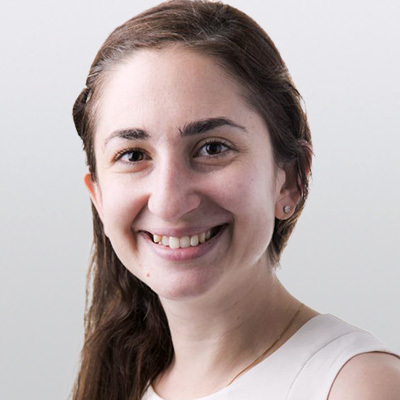
Dr Lisa Kouladjian O’Donnell
Dr Kouladjian O'Donnell is a registered consultant pharmacist who conducts Home Medicine Reviews in older Australians, and is a clinical pharmacist educator within the School of Pharmacy at The University of Sydney.
Lisa is a research fellow in geriatric pharmacotherapy in the Faculty of Medicine and Health at The University of Sydney, and the Kolling Institute, Royal North Shore Hospital, NSW. She has led the development of tools that can be translated into clinical practice to address polypharmacy-related issues, including The Drug Burden Index Calculator and the Goal-directed Medication review Electronic Decision Support System (G-MEDSS). These tools are designed to guide accredited pharmacists and GPs to deprescribe inappropriately prescribed anticholinergic and sedative medications, while considering their patient's goals of care.
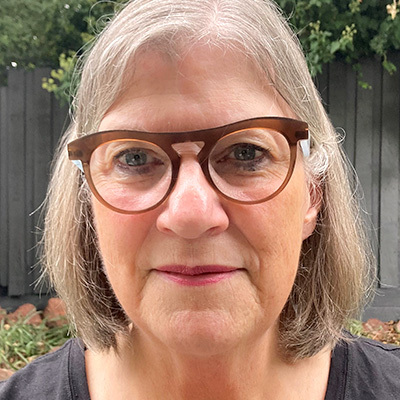
Alison Marcus
Alison Marcus has been a member of Consumers Health Forum of Australia since 2003.
She has represented consumers’ interests on a range of statutory and other committees in medicines regulation, community pharmacy research projects, advertising oversight of pharmaceuticals, safety and quality healthcare standards and review of the MBS. She has an interest in health literacy improvements for users of health services, including the tools used to provide access to information and regulation of information standards.
Alison has worked as a registered nurse since 1978, with experience in intensive care, community health, midwifery, infection control, diabetes education and stomal therapy in metropolitan, regional and remote settings across several Australian states. She has also worked as a sessional clinical teacher and occasional lecturer in acute and community hospitals and tertiary programs.
Learning outcomes
General practitioners
By the end of this activity, participants will be able to:
- assess cumulative anticholinergic burden to identify patients at risk of poor patient outcomes
- discuss medication management decisions with patients, including deprescribing, to reduce anticholinergic burden
- implement a patient-centred multidisciplinary approach to assessing, managing and reviewing anticholinergic burden to reduce risk of adverse events
- optimise the medication management review (MMR) process by improving communications with the healthcare team and patient, including referrals and follow-up to maximise health outcomes for patients.
Nurses
By the end of this activity, participants will be able to:
- identify medicines that contribute to cumulative anticholinergic burden which may lead to poor patient outcomes
- recognise signs of anticholinergic burden to better communicate patient symptoms to the multidisciplinary team
- use non-pharmacological alternatives to medicines with anticholinergic effects to minimise anticholinergic burden
- implement a patient-centred multidisciplinary approach to assessing, managing and reviewing anticholinergic burden to improve patient outcomes.
Pharmacists
By the end of this activity, participants will be able to:
- identify medicines that contribute to cumulative anticholinergic burden which may lead to poor patient outcomes
- recognise signs of anticholinergic burden to better communicate patient symptoms to the multidisciplinary team
- recommend non-pharmacological alternatives to medicines with anticholinergic effects to minimise anticholinergic burden
- implement a patient-centred multidisciplinary approach to assessing, managing and reviewing anticholinergic burden to reduce risk of adverse events
- optimise the MMR process by improving communications with the healthcare team, including the report and follow-up to maximise health outcomes for patients.
Reading & resources
Webinar slides
More resources
- Health professional page: Anticholinergic burden: the unintended consequences for older people
- Factsheet: Side effects from your medicines? 5 questions to ask (anticholinergic side effects)
- Decision aid: Exploring my options: When my medicines may be causing side effects (anticholinergic side effects)
- Action plan: Planning for a change: When my medicines may be causing side effects (anticholinergic side effects)
